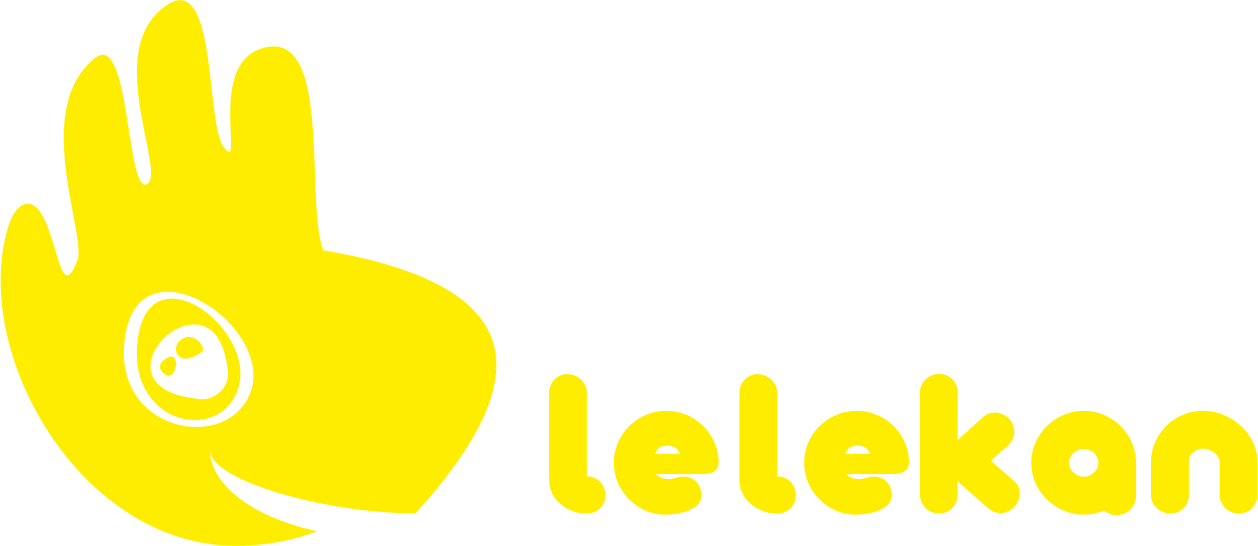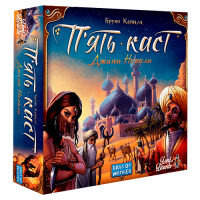Review of Five Tribe Board Game
Related Products
If there's one thing that captures my heart from a board game, it's a big bag of meeples. I don't care what shape or what color, give me a big drawstring bag filled with the most famous image in board games and I'm good to go! Wait, wait… There's a game with all that and even more wooden components? So, little wooden palaces, palm trees and camels? And it's published by Days of Wonder ?!
We dive into Five Tribes

REVIEW
Five Tribes is a game in which you control the tribes of Nakala in the hope of becoming the most powerful leader of a legendary city. Set in the mythos of the 1001 Nights, this game is filled with beautiful Arabian Nights Tales imagery. Genies, camels, palaces, oases and mystical lands are soaped on the five tribes to create unforgettable and beautiful art that will truly stay with you.

In this game, each player will compete for power by influencing all five colorful meeples, each representing one of the five castes. Each caste has a special ability that will give you some power when used. In addition, each of the 30 tiles that make up the playing field also has a special attribute that will be useful in your quest for power. Some tiles will even give you the ability to summon a special genie that will give you even more unique abilities.
The game continues until there are no moves left or until a player captures eight different city tokens as their own. The player with the most influence by scoring victory points is crowned the Sultan of Nakala and the winner.
PREPARATION FOR THE PARTY
The playing field consists of 30 tiles randomly distributed in a 5x6 grid. When the tiles are placed to create a field, three meeples are allocated to each tile randomly from the great bag. Nine resource cards are placed in a line on one side of the field to create a market, and three genie cards are flipped over to reveal available genies. Each remaining token (money/victory points, palm trees and palaces) should be placed in stacks near the field. After completing the field preparation, each player receives eight camels and 50 coins.

GAME PROCESS
My favorite part of this game is the Mankala (Kalaha) game mechanic that is the foundation of every turn. Similar to Mankala, on your turn you collect all the meeples on one tile and place them on adjacent tiles until they run out. There are a few small rules that are important when moving these meeples:
- You must place a meeples on an orthogonally adjacent tile. (without moving diagonally)
- You cannot immediately return to the tile you just placed the meeples on.
- You must place the last meeples on a tile that has at least one meeples of the same color as the one you discard.
Once all of these rules have been met, you will take all meeples of that color and perform their tribe's actions. Also, if you've completely cleared a tile of meeples, you'll gain control of it by placing one of your camels on it. After checking control, you can (and sometimes should) activate a tile's ability and then end your turn.
Simple enough, right? Move some meeples and perform some bonus actions!
FIVE CASTES
One of the things that makes this game so great yet challenging is that each of the tribes (the colored meeples) has different abilities. Not only are you trying to maximize the number of meeples you can draw from a single tile, but you're also trying to maximize the number of one particular tribe that will benefit you the most. This can be a difficult task because there are so many different options available on the field at once.

Each of the five castes has different abilities:
- Yellow visors just net you victory points at the end of the game.
- White Elders give you victory points at the end of the game and are used as a means to obtain genies and/or summon their powers.
- Green merchants allow you to draw an amount of resources from the front of the resource stack equal to the number of green meeples you pick up.
- Blue Builders immediately give you money based on the number of blue tiles surrounding your end tile multiplied by the number of blue meeples you pick up.
- Red assassins (assassins) kill one meeple either from another player's supply or from a tile adjacent to the tile where the assassins were selected. Each additional assassin allows you to extend the range by one tile from the starting point.
PROPERTIES OF TILES
As I mentioned before, once you take your meeples off the last tile you placed the last meeples on, you'll have the option of getting one of several special abilities. The first two mandatory abilities force you to place an oasis or village token on the tile. These tokens increase the value of the tile to the player controlling it and can be activated multiple times.

The second set of abilities is optional. Small Market and Big Market give you the option to pay a certain amount of money to get a certain number of cards in the market. The Sanctuary ability allows you to acquire one of the available genies by discarding either two white Elder Meeples, or one Elder and a special card.

All of these abilities will be extremely important in gaining victory points throughout the game.
END OF ROUND AND UPDATE
At the end of your turn, you can sell resource cards in sets of up to nine. The more cards in the set, the more money you earn! There are nine different resource cards, and you cannot include more than one copy of a resource card in a set.

After your turn is over, play continues to the next player until all players have had a turn. After all players have had their turn, the resource market and available genies are replenished and a new round begins.
Here's another genius mechanic from the Five Casts: the first-come, first-served auction. You can imagine that playing with so many options available will result in some being clearly better than others. Since every player knows that if they don't go first, their plans will most likely be disrupted, the opportunity to go first is a very welcome bonus. Five Tribes presents an ingenious intellectual game to solve this problem.

Somewhere near the field there will be a path of the order of the players. At the end of each round, players take turns placing their rooks of the wrong shape)) on the track, the cost of which they are willing to pay in the hope of being the first player. This track is made up of spaces with a value between 0 and 18. Each player must pay the value they placed their chip on, no matter what, even if the other players choose not to pay anything. This creates tense moments in the game when someone wants to be first more than anything and has to decide whether he or she wants to spend a large amount of money to guarantee it, or spend less in the hope that no other player will outbid them.
I've seen people win by betting aggressively to get the best odds, but I've also seen people lose by spending too much money on their turn order bets. The difficult decision of whether or not your move is worth more than the 18 coins needed to guarantee the first move makes for such an intense first player choice.
I'm not sure I've ever spent so much time talking about a small mechanic like move selection, but this system is the icing on the cake for such a well-designed game.
EXPERIENCE FROM THE GAME
Obviously, I love this game. Her tough decisions certainly make you think hard every move, but the constantly changing nature of the field forces you to constantly think on your feet as your turn approaches. While I like that depth, I know it's not for everyone. The sheer amount of choice and variety that Five Tribes offers is both its greatest strength and its greatest weakness. For some players, sometimes the sheer number of options available will either turn them off or cause significant analysis paralysis. My general philosophy when playing is to go with your instincts so you don't spend too much time thinking about your move. However, many players do not see this as an option and may take more time than desired.
If a good game is made up of many difficult decisions (which I believe it is), then Five Tribes is impressive. During a turn, the player must find the best tile to draw from, the best ability tile to place the meeples on, and the optimal color of meeples to place on that tile.
The fact that Five Tribes published Days of Wonder gave me confidence that this was going to be a great game before I even opened the box. DoW is a publisher known for several distinctive qualities of its games. Two of the most fruitful characteristic qualities are their quality of arts and components; and their tendency to publish games that are deep enough for gamers, yet light enough for families. Not only are these two mainstays of their games, they usually only publish one new title each year. They seem to take a quality over quantity approach and Five Tribes is no exception.

The first of these two qualities I mentioned are arts and components. The five casts follow the lead of past Days of Wonder games with lots of colorful and hefty figures. There's a huge bag of wooden meeples (oh man….) in addition to plenty of fat wooden camels, palm trees, palaces, and the starting players' pawns. Everything is as colorful as the majestic world in which it takes place.
Not only do the meeples look great, the designs on the tiles and cards are equally attractive. Clément Masson has done a fantastic job of portraying the myths of the 1001 Nights in a colorful, mystical and engaging way.
The second quality I mentioned is their ability to publish games that are easy to learn, yet deep and challenging to master. Having games that can be pulled with a mix of "gamer" and "non-gamer" friends is invaluable in a collection.
This is one aspect where Days of Wonder stretched itself a bit. This is definitely the more sophisticated side of their line. While I don't think Five Tribes is an extremely difficult game per se compared to other DoW games like Ticket to Ride, it leans more towards the difficult side of the spectrum. I don't think it's bad. I'm actually glad they took the opportunity to publish a game that was a little out of their comfort zone. However, I have taught this game to some less experienced gamers and they still loved it!
CONCLUSION
Five Tribes is a game with huge replayability. This game feels fresh and new every time it's played, thanks to the change board and the placement of the meeples. This is a game for people who like a lot of wooden details and interesting solutions. It's also a game that can easily turn people off with the sometimes overwhelming amount of options available. This game is a permanent fixture in my collection and I recommend it to just about anyone with even the slightest interest in gaming.
USEFUL LINKS
Five Tribes on the BGG portal
https://boardgamegeek.com/boardgame/157354/five-tribes
VIDEO REVIEWS





